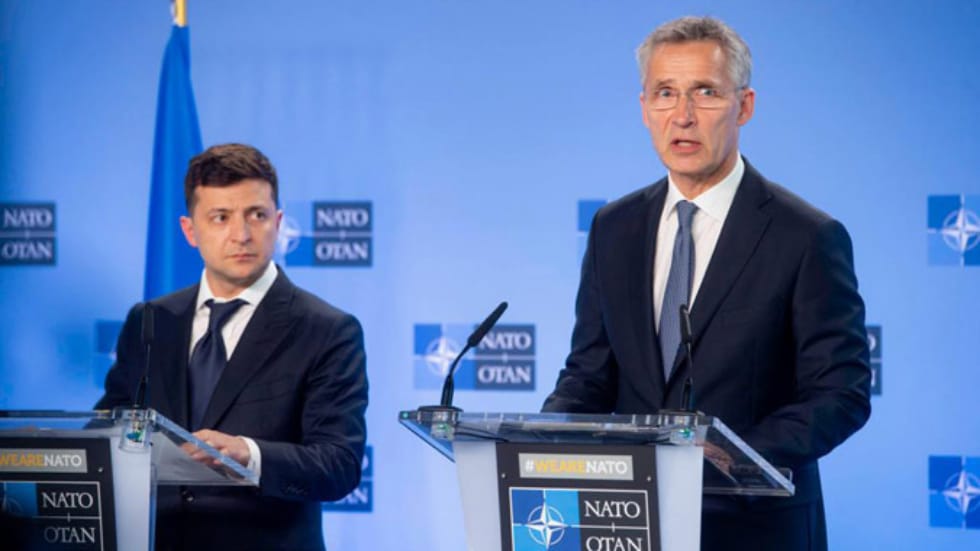As the Russian invasion of Ukraine grinds on and the two sides continue negotiations, the Washington Post reports that some NATO states prefer Ukrainians continue “fighting and dying” over “a peace that comes too early,” rejecting any outcome that could be sold as a “victory” for Moscow.
Though Ukrainian President Volodymyr Zelensky has repeatedly acknowledged that his country will not join the NATO alliance in recent weeks, some members are loath for Kiev to accept that key Russian demand, according to officials and diplomats cited by the Post.
“Even a Ukrainian vow not to join NATO could be a concern to some neighbors,” the outlet reported. “That leads to an awkward reality: For some in NATO, it’s better for the Ukrainians to keep fighting, and dying, than to achieve a peace that comes too early or at too high a cost to Kyiv and the rest of Europe.”
The revealing Post report comes as Turkey and Israel attempt to broker an agreement that will bring a resolution to the war. While NATO is not a direct party to the talks, a number of member states are likely to play a role in the outcome.
To date, Moscow has made several core demands from the Ukrainian side, seeking territorial concessions in both Crimea and the Donbass in addition to the neutrality pledge. Some NATO states are reluctant to hand Russian President Vladimir Putin “any semblance of victory,” however, fearing he could be “inspired” to launch attacks on other neighbors to gain similar concessions.
“It’s a little tricky for the US and other allies… They don’t want something to come out of the negotiation that isn’t implementable,” former NATO Deputy Secretary General Alexander Vershbow told the Post.
“If the Ukrainians accepted a deal that does involve territorial concessions, it may be good enough for Ukraine in some circumstances, depending on what else they get, but it could set a bad precedent in terms of further legitimizing changing borders by force and by brutal, rapacious conquest, as the Russians are doing in many parts of Ukraine,” he added.
UK Foreign Secretary Liz Truss has said British sanctions on Moscow will not be removed until all Russian forces have left Ukrainian soil and the country’s full “territorial integrity” is restored, appearing to set conditions regardless of what Kiev decides. Western penalties, then, may persist even if Ukraine agrees to Russia’s terms over disputed territory, potentially dissuading Moscow from any negotiated compromise.
Russia has long protested the continued expansion of NATO toward its borders, presenting security proposals to the US and other member states in December urging the alliance to halt its growth eastward. The offer came amid a major military buildup on Ukraine’s borders and was ultimately rejected, with the Russian invasion commencing just two months later.
Though Zelensky has since agreed to remain outside the bloc, he has suggested NATO members could strike security pacts with Ukraine to guarantee its defense. An unnamed US official reached by the Post said the Pentagon had not been consulted on any such plans, and indicated there isn’t “a lot of appetite” for such an arrangement among military leaders.
“It appears like they’re looking for the same thing as Article V without being a NATO nation, and that probably would be a very rough row to hoe with the international community,” they said, referring to NATO’s collective defense provision.
With the latest round of face-to-face talks concluding in Istanbul in late March, Russian and Ukrainian negotiators have reportedly arrived at some preliminary agreements, while officials in Kiev predict a future summit between Putin and Zelensky “with a high probability.” It remains to be seen how a final deal will go over in Western capitals, however, or whether NATO states will attempt to scuttle any arrangement they deem too friendly to Moscow.






























